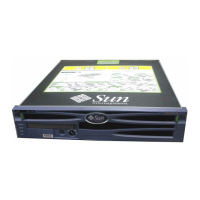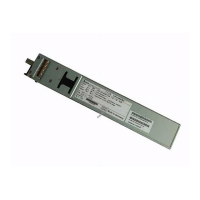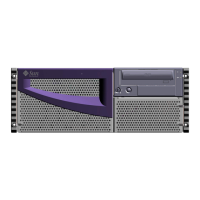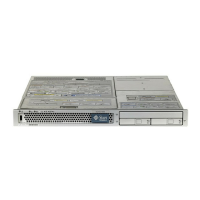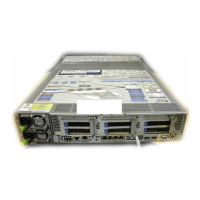Chapter 3 OpenBoot PROM 33
OpenBoot Emergency Procedures
The introduction of Universal Serial Bus (USB) keyboards with the newest Sun
systems has made it necessary to change some of the OpenBoot emergency
procedures. Specifically, the Stop-N, Stop-D, and Stop-F commands that were
available on systems with non-USB keyboards are not supported on systems that use
USB keyboards. If you are familiar with the earlier (non-USB) keyboard
functionality, this section describes the analogous OpenBoot emergency procedures
available in newer systems that use USB keyboards.
Stop-A Functionality
Stop-A (Abort) key sequence works the same as it does on systems with standard
keyboards, except that it does not work during the first few seconds after the server
is reset. In addition, you can issue the ALOM break command. For more
information, see “Switching Between the Consoles” on page 6.
diag-switch? true, false false If true:
1. OpenBoot verbosity is set to maximum
2. After a boot request, boot diag-file
from diag-device
If false:
1. OpenBoot verbosity is set to minimum
2. After a boot request, boot boot-file
from boot-device
error-reset-recovery boot, sync,
none
boot Command to execute following a system
reset generated by an error.
network-boot-
arguments
[protocol,]
[key=value, ]
none Arguments to be used by the PROM for
network booting. Defaults to an empty
string. network-boot-arguments can be
used to specify the boot protocol
(RARP/DHCP) to be used and a range of
system knowledge to be used in the
process. For further information, see the
eeprom (1M) man page or your Solaris
reference manual.
TABLE 3-2 OpenBoot Configuration Variables Stored on the System Configuration Card (Continued)
Variable Possible Values Default Value Description
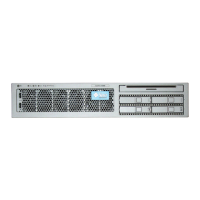